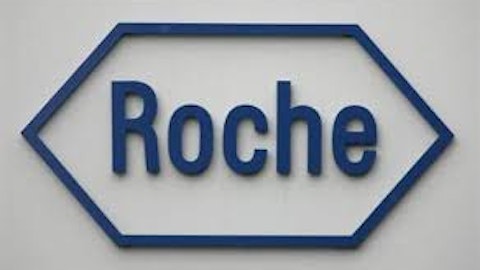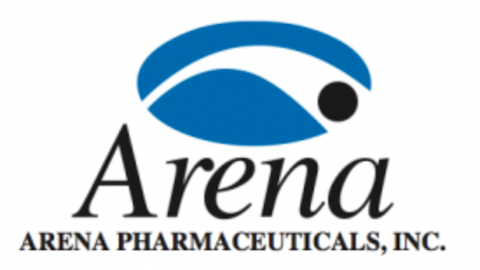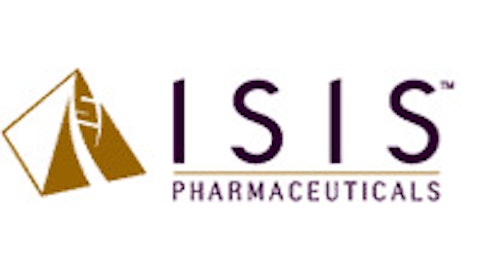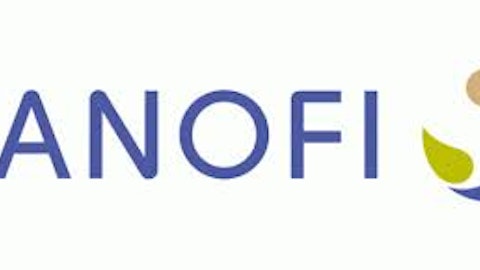GlaxoSmithKline plc (ADR) (NYSE:GSK) has been accused of making illegal payments to Chinese doctors and government officials by siphoning them through travel agencies. If these allegations are substantiated — Glaxo officials at the highest levels have acknowledged that company executives might have broken the law — they could have serious ramifications for the firm’s future. By some accounts, however, these entanglements are simply the price of doing business, something that companies move beyond in the course of things.
But, does GlaxoSmithKline plc (ADR) (NYSE:GSK) enjoy enough financial strength to withstand these pressures? A study of its numbers seemingly does not indicate that is the case; this United Kingdom-based company is carrying too much debt to slide though rough times.

And not surprisingly, the credit rating agencies have taken note of GlaxoSmithKline plc (ADR) (NYSE:GSK)’s debt. Earlier this summer, Moody’s cut the outlook on Glaxo’s long-term A1 rating to “negative” from “stable.” In making that move, it cited concerns not only about the company’s debt, but also about massive legal settlements it has been obliged to pay. These payments evolved from marketing strategies designed to pump up sales of its diabetes drug Avandia and its antidepressant Wellbutrin rather than from the Chinese “scandal.”
And GlaxoSmithKline plc (ADR) (NYSE:GSK) recently received other troubling news. India’s Intellectual Property Appellate Board (IPAB) revoked the patent that it held on its breast cancer drug Tykerg, a salt form of lapatinib. The challenge that resulted in this judgment came not from an Indian company, but from the Indian unit of the German drug maker Fresenius Kabi.
Decisions of this type might become more common in the future and greatly impede the potential of Glaxo and other pharmaceutical companies to expand their sales into developing countries.
Some alternatives
If investors prefer a European pharmaceutical company to an American one, but are leery of GlaxoSmithKline plc (ADR) (NYSE:GSK), they do have two alternatives: Novartis AG (ADR) (NYSE:NVS) and AstraZeneca plc (ADR) (NYSE:AZN).
However, while some of the fundamentals these firms have might be more impressive than GlaxoSmithKline plc (ADR) (NYSE:GSK)’s, they are hardly stellar. Novartis AG (ADR) (NYSE:NVS) had a debt/equity ratio (for the most recent quarter) of 27.10, hardly the 1.00 or less that is considered optimum. And its year over year revenue growth for the quarter ending on March 31, 2013, was only 1.10% while quarterly earnings growth for the same period was (5.00)%, hardly a reflection of robust profitability.
But, it is sometimes difficult to predict future results based on the past or even the present performances, and there is reason to believe that Novartis AG (ADR) (NYSE:NVS)’ prospects might be brighter than its current fundamentals would indicate. It continues to lead the industry with 56 new approvals in the U.S., Europe, Japan, and China since 2007. In 2012 alone, the Pharmaceuticals division received nine approvals or positive recommendations to date. One of the most promising new additions to Norvatis’ catalog is Afinitor, an oncology drug. Analysts predict that it has the potential to exceed sales of $2 billion for the treatment of breast cancer alone by 2017.
The United Kingdom-based AstraZeneca plc (ADR) (NYSE:AZN), meanwhile, had an unimpressive debt/equity ratio (for the most recent quarter) of 45.42. And for the quarter ending on March 31, 2013, its year over year quarterly revenue decline was 13.10% and its quarterly earnings fall was an even more troublesome 37.80%.





